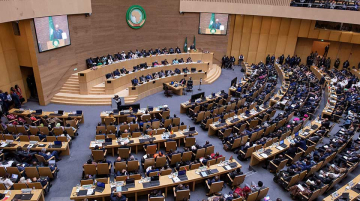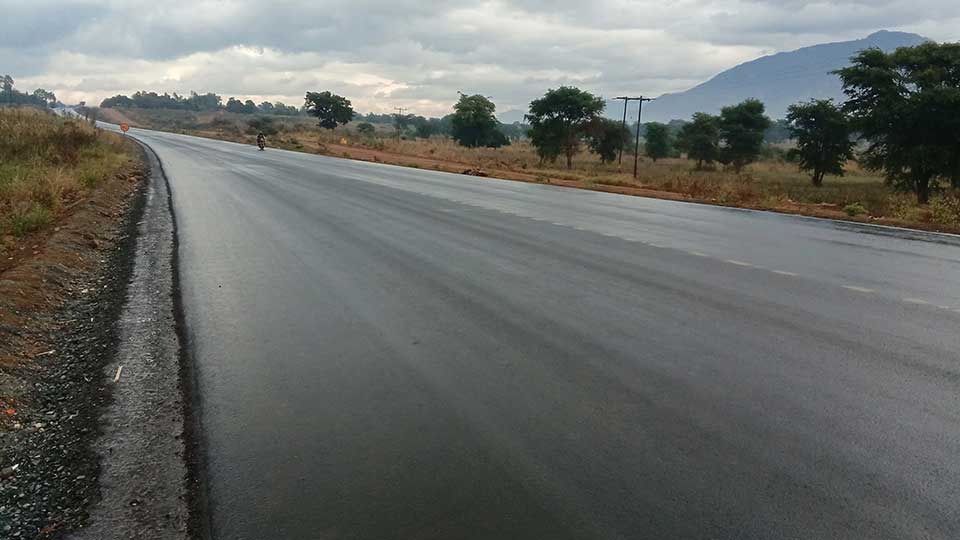
Does the Chinese proverb “If you want to get rich, build a road first” ring true for Malawi? Or does this proverb apply only to Chinese construction companies rather than Malawians?
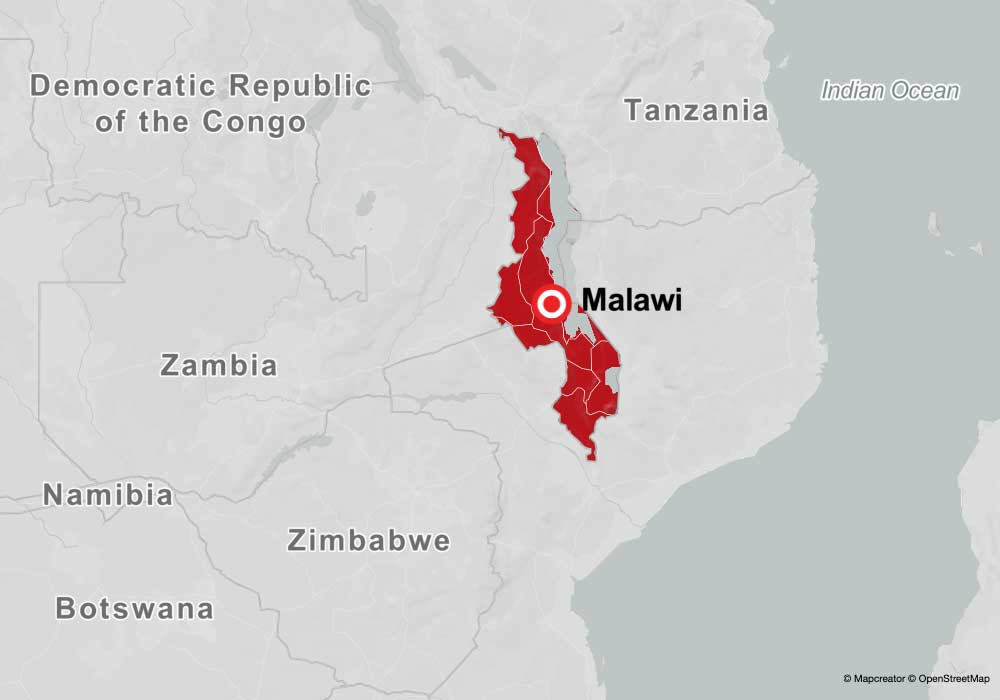
Malawi is a landlocked Southeastern African country, approximately the size of the U.S. state of Pennsylvania, surrounded by Tanzania to the north, Mozambique to the east, and Zambia to the west.
The poverty rate of Malawi is high. World Bank estimates that 71.3% of its 20 million people live in extreme poverty. Agriculture remains the backbone of the economy; 85% of the population depends on it, and about 55% work in the sector.
“Improved roads improve access to the markets by farmers and traders to sell their produce and buy essential goods, thereby increasing household incomes,” said Ammiel Champiti, Road Authority CEO.
Champiti explained that good road networks the Chinese companies are constructing create jobs during construction and in the long term, and roads spark indirect employment opportunities through stimulated local economies.
The question now is: after roads are built in a place like Malawi, does prosperity follow, as the Chinese proverb suggests?
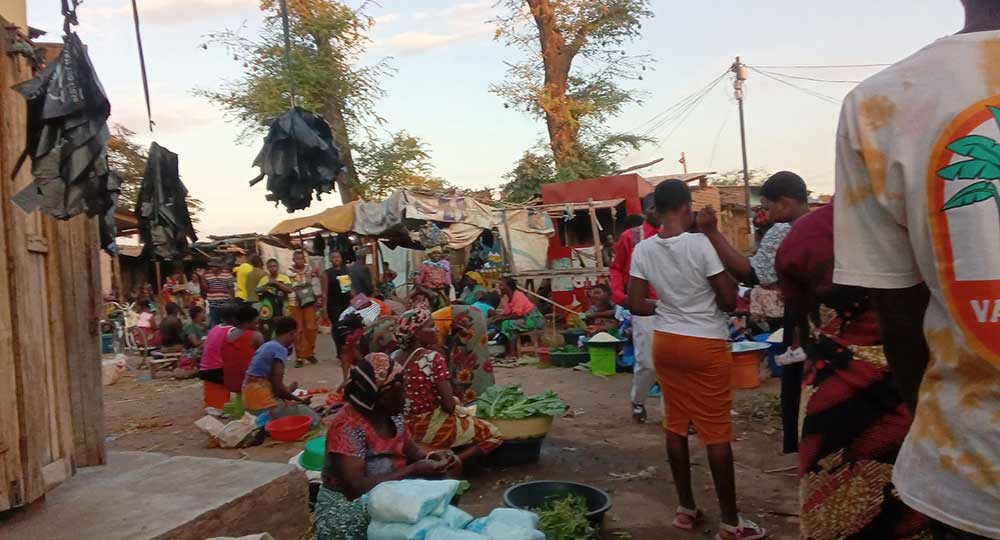
Dusty Roads Make Business ‘Difficult’
Karonga lies an hour south of Kasumulu, Tanzania, along Lake Malawi. The M26, a.k.a. the Karonga-Chitipa road, runs 102 km from Karonga northwest to Chitipa, near the Zambia border, an hour’s drive. It was constructed using a $70 million grant from the Chinese government and completed in 2013.
The road was an interesting upgrade target due to the increased population and economic act Karonga and Chitipa districts, as well as the presence of few vehicles, poor terrain, and high unmotorized transport use, according to a study done in 2018.
“At the national level,” said Road Authority CEO Champiti, “Roads improve connectivity within and beyond Malawi’s borders, enhancing regional trade and economic integration. The Karonga-Chitipa road, for example, is connected to both Tanzania and Zambia. That makes the road a critical corridor.”
Before the road upgrade, says Langifored Ndhlozi, 30, owner of a car wash in Karonga, “there was no tarmac road between Karonga and Chitipa.” Ndhlozi recalls that road conditions discouraged the growth of business along the route. “The dusty road made it very difficult to travel and do business.”
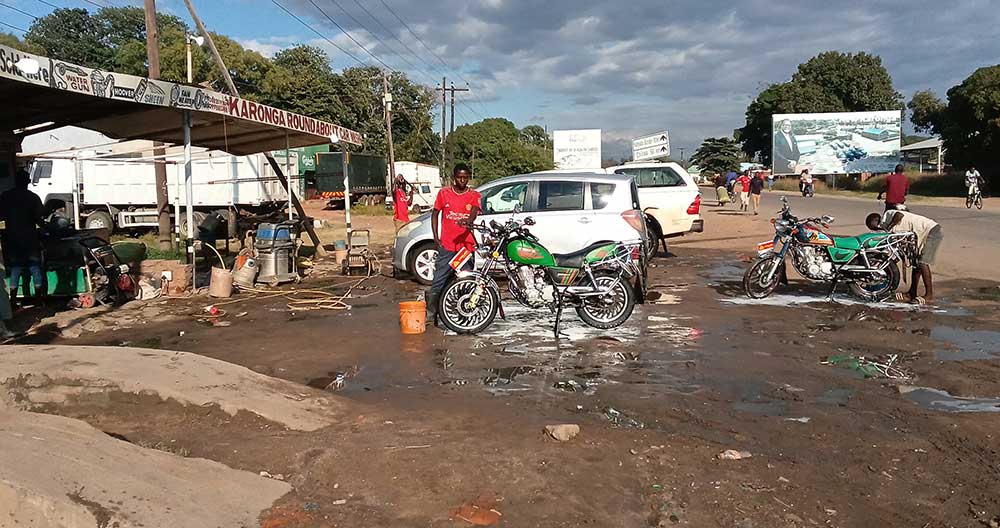
The road from Karonga to Chitipa before the construction was dusty and it was difficult for people to travel even to own a car. The study indicates that in one village of Lufita in Chitipa district there was only one person with a car before the road was constructed in 2008 and after the road was completed the number of people owning cars increased to 13 at the time the research was done in 2018. This, according the study and interviews this writer conducted, shows that the economic status of the communities has improved.
‘Today, Businesses Are Booming’
Five years ago, Ndhlozi opened the Karonga Roundabout Car Wash near the junction of the Karonga-Chitipa road and the M1, which stretches from the northern border of Malawi at Kasumulu, Tanzania, to the southern border to Mozambique.
“The location is strategic because this is a very busy place. We have a number of cars passing through the M1 road to and from the border, and on this other side where I am, is the Karonga and Chitipa road,” said Ndhlozi, adding, “I chose this site for my business because I knew I would be making money.”
Even more encouraging to Ndhlozi are the multiplier effects of the road construction. He now employs seven young men to wash cars, and their families benefit. “Today, businesses are booming, and people travel easily because of the new roads,” boasts Ndhlozi.
Kettie Msukwa is a 48-year-old businesswoman and mother of four. She ruled out selling her goods near home, wondering, “Who will buy from me, or who will see my business there?” Msukwa said the Karonga-Chitipa road has turned the economic tide in the lives of people in the two districts.

The road opens up markets: “We used to take about five or six hours between Karonga and Chitipa because of the bad road that we had. Today, we take two or less hours to reach either side of the districts,” says Muskwa.
Champiti explained that better roads lead to “enhanced access to health facilities, schools, and other social services, improving quality of life.” Msukwa and Ndhlozi agree that the road is changing the lives of many people, especially those who need medical treatment unavailable near home.
Road Rehabilitation in the Malawi Capital
Chinese roadwork has transformed Lilongwe. Rehabilitation of the M1 road began in the capital in July 2022 and continued northward. Construction is almost complete on the divided highway, and six-lane roads have been funded with a grant of $20.8 million by the Chinese government. The newly constructed roads have reduced traffic congestion and travel time.
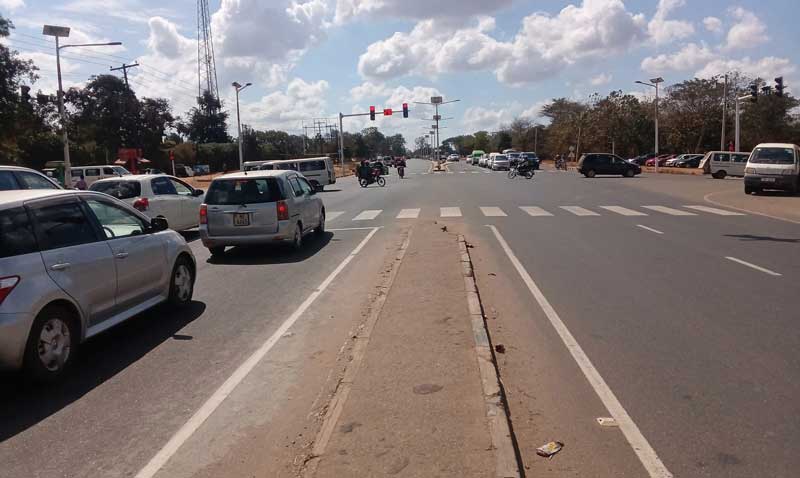
Chinese contractors China Civil Engineering Construction Corporation and Shandong Luqiao Group Co. Ltd. are involved in the construction of these city roads.
China Henan International Cooperation Group (CHICO) is also involved in the construction of the M1 road. CHICO is rehabilitating 66.5 km of the 347 km section of the M1 road from the turn-off to Kamuzu International Airport in Lilongwe to Karonga in the north. The EU and European Investment Bank fund this work through grants and concessional loans of $163 million.
“I am happy to see Lilongwe transformed. As you can see, all these cars here are being sold close to this new road because they know it’s where business is,” said Suwareyi Twaili, a tire fitter operating his business along the newly constructed divided highway.
A Good Road ‘Is Not Enough’ for Riches
Road construction in Lilongwe was set for completion in December 2024 but is overdue because of rising material costs, shortages of foreign exchange, and devaluation of local currency.
In November 2023, the Government of Malawi devalued the local currency, the Kwacha, against the US dollar by 44%, and another devaluation followed, which was pegged at 25%. These devaluations not only affect the local population but also road construction.
Devaluation and the fuel crisis increase transport costs, affecting businesspeople. Along the Karonga-Chitipa road, businesswomen are stuck with unsold produce due to high and unfair transport costs.
“Having a good road like this one [the Karonga-Chitipa] is not enough. But the availability of fuel at the fuel pump is also key to helping us improve our lives through our businesses. Transport costs are affecting our businesses, and we wish we had this problem sorted out,” said Maggie Mweghogha, one of the businesswomen with unsold produce.
Mweghogha said that most of the time, transport operators charge higher fares to the farmers as their clients to offset the black-market fuel costs.
High-cost fuel leads to transportation delays caused by consignors trying to find a reasonable fare. “We sell vegetables, and when we take a long time on the road waiting for transport, our produce gets damaged, and in the end, we lose out,” says Steria Mulinda, a mother of three children.
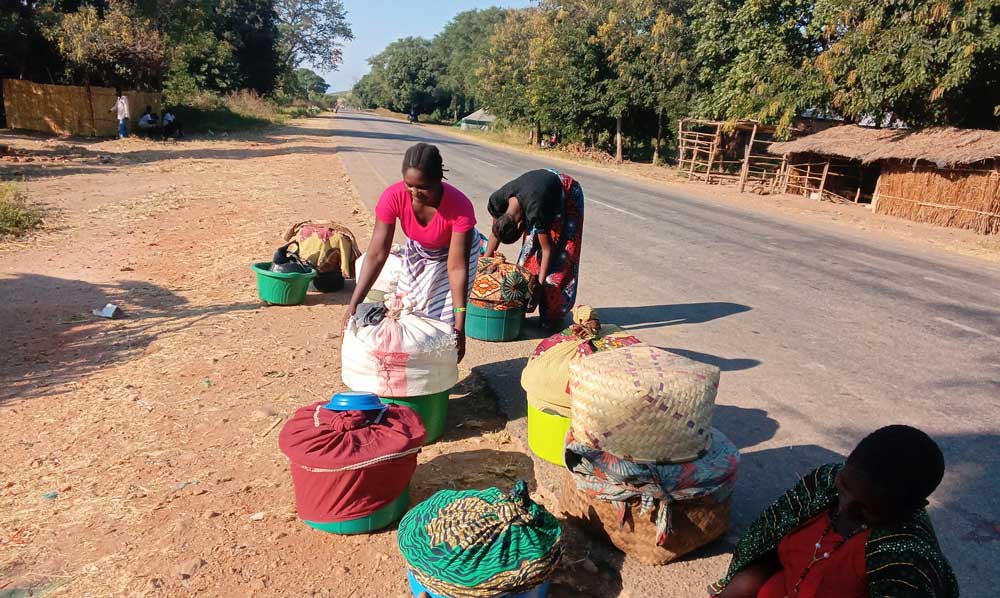
Mulinda has sold vegetables for seven years at venues like the district health facility, all because improved roads have made it easier to transport her produce to markets.
Malawi has faced a fuel and foreign exchange crisis for the past four years, so despite the upgraded roads, the economic benefits are hard to quantify.
As the country heads toward the general election in September, the fuel supply appears more constant at filling stations. Malawians hope stabilized fuel costs, combined with the benefits of improved roads, will bring the Chinese proverb’s promised riches, but now some locals are still left in rags.
Raphael Mweninguwe is a freelance journalist based in Lilongwe.



